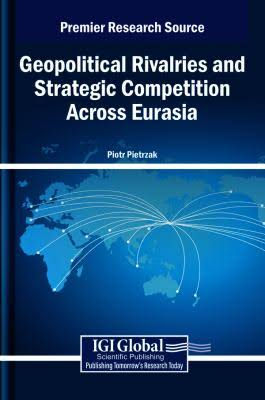The Publication of International Relations Theory and Philosophical Political Insights Into Conflict Management (2024)
- Piotr Pietrzak

- Dec 6, 2024
- 1 min read
Updated: Mar 20
"The primary goal of this book is to utilize the tools and methods that we have in more effective ways to address modern conflicts of regional and global importance by reinforcing empirical bridges of mutual understanding between our sub-disciplines and multiplying approaches, providing essential tools to attain this objective"-- Piotr Pietrzak




Comments